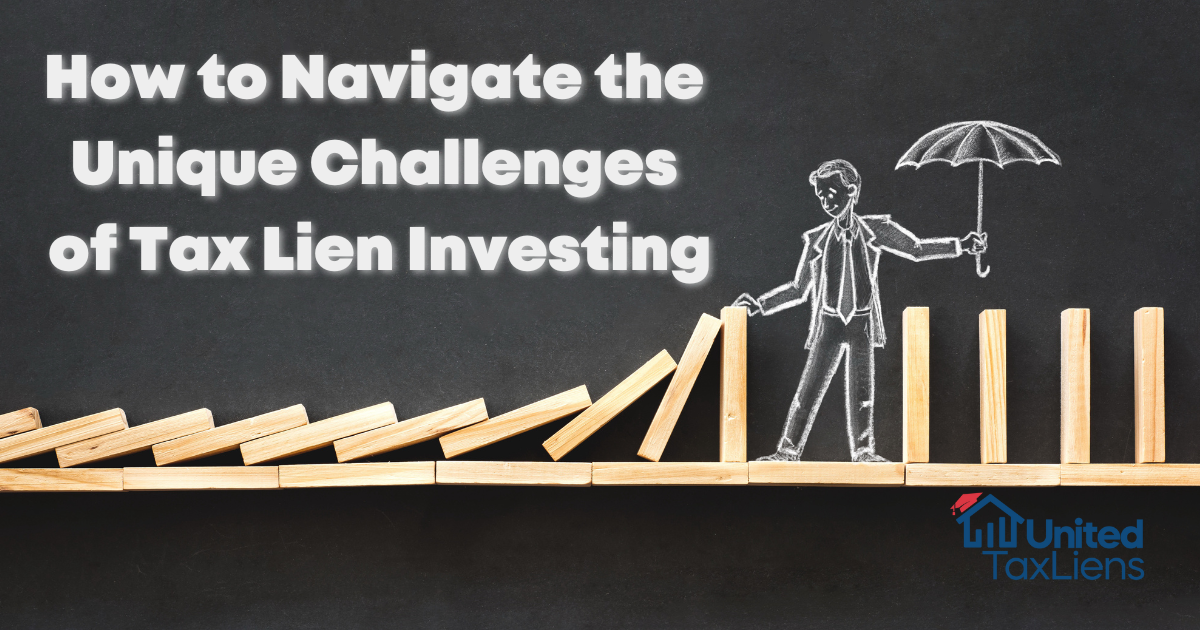Tax lien investing is full of opportunities, but it comes with its own set of unique challenges that can make or break an investment. One of the biggest hurdles is the potential for foreclosure. If a property owner doesn’t pay off their overdue taxes within the redemption period, you might end up pursuing foreclosure to claim the property. While that sounds promising, the process itself can be a complicated, time-consuming affair that involves a maze of legal procedures. Each jurisdiction has its own set of rules, and navigating these complexities can be daunting without a solid understanding of local laws. It’s worth having a clear plan and potentially a legal expert to guide you through.
And that’s just the start of the legal intricacies. Tax lien investing isn’t as simple as purchasing a lien and watching the returns roll in. Each locality has its own regulations that dictate how the process works, from bidding at auctions to pursuing foreclosure. Missing even one small step can lead to setbacks, so brushing up on local laws is a must. Consulting with an attorney who specializes in tax liens can be a game-changer, especially if you’re new to the field.
But let’s say the legal side goes smoothly—there’s still the property itself to consider. Not every lien-backed property is in prime condition. Some might be run-down or riddled with structural issues, and unexpected repair costs can eat into your potential returns. This is where thorough due diligence becomes crucial. You need to have a clear picture of what you’re bidding on before you even think about placing a bid. Otherwise, what looks like a bargain could turn into a money pit.
And then there’s the uncertainty of redemption. The whole point of tax lien investing is that property owners have a set period to pay off their back taxes and redeem the lien. But not everyone follows a predictable pattern—some owners wait until the very last moment to pay, while others don’t pay at all. This uncertainty makes it tough to plan your cash flow and anticipate returns. Being prepared for both scenarios can help you avoid frustration and keep your strategy flexible.
Real estate markets can be unpredictable as well. A downturn in property values or a sudden shift in local demand can make an otherwise great lien lose its appeal. Staying informed about local economic conditions is essential for gauging the stability of your investments. Markets go through cycles, and being in tune with those shifts will help you adapt your approach when necessary.
Then there’s the challenge of dealing with property owners themselves. Communication can be tricky—some owners are cooperative, while others are difficult to reach or simply unresponsive. Establishing clear lines of communication, or at least staying informed about their situation, can sometimes make the redemption process smoother and give you a better idea of what to expect.
Of course, getting your foot in the door is its own battle. Tax lien auctions are competitive environments, and it’s common to find yourself bidding against multiple investors all eyeing the same property. Without a solid bidding strategy, it’s easy to overextend yourself or walk away empty-handed. Doing your homework beforehand and setting clear limits will help keep emotions in check and prevent you from making impulsive decisions.
Even if you win the bid, there’s always the risk of deterioration. Properties tied up in tax liens are often neglected, and the longer they sit, the more likely they are to fall into disrepair. This isn’t just an aesthetic issue—it can significantly impact the property’s value and complicate your ability to resell or rent it out later on. Regularly checking up on the condition of the properties you’ve invested in, or even driving by when possible, is a good idea to ensure you’re not caught off guard.
There’s also the potential for title issues, which can be a headache to resolve. Liens aren’t always the only claim against a property. Without a thorough title search, you could end up facing unexpected encumbrances that complicate the redemption or foreclosure process. This makes clear title a crucial factor to consider before making your investment.
And just when you think you’ve accounted for everything, there’s the wildcard of bankruptcy. If a property owner declares bankruptcy, the entire process can grind to a halt. Redemption timelines might extend, legal processes become more complex, and suddenly, what seemed like a straightforward investment is now wrapped up in court proceedings.
With so many variables at play, tax lien investing isn’t for the faint of heart. But being aware of these potential challenges—and having strategies in place to address them—will help you navigate the landscape more effectively. Whether it’s staying on top of market trends, maintaining open lines of communication, or keeping your legal bases covered, tackling these challenges head-on is the key to success in the complex world of tax lien investing.
This blog is for informational purposes only and should not be relied upon as financial or investment advice. Real estate investing carries risks, and individual results will vary. Always consult with your team of professionals before making investment decisions. The authors and distributors of this material are not liable for any losses or damages that may occur as a result of relying on this information.













